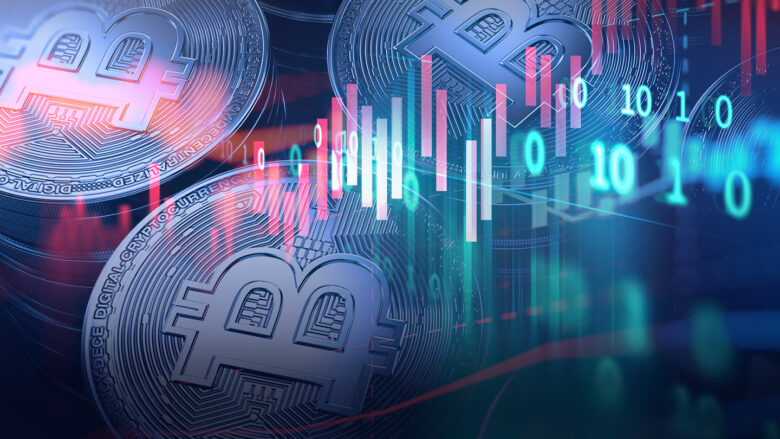Blockchain is at the heart of one of the biggest shifts in the financial world. Once primarily associated with cryptocurrencies like Bitcoin, it has emerged as a powerful technology transforming digital banking worldwide. Blockchain breaks down long-standing barriers that have hindered the sector’s growth, speeding up transactions and bringing greater clarity to processes. Banks, governments, fintech companies, and even private investors are exploring its potential. This decentralized, secure, and open system opens up new possibilities for businesses and consumers. The growing number of companies implementing blockchain demonstrates that it’s not just a passing fad but the future of money. While blockchain continues to strengthen the banking sector, its impact is already being felt globally.
Blockchain in Finance
Blockchain emerged in response to a lack of trust and clarity in financial transactions. Traditionally, banks and clearinghouses acted as intermediaries in the financial system, verifying and processing transactions. This process was time-consuming, costly, and prone to fraud. Blockchain changes this by enabling people to conduct transactions instantly, securely, and reliably using cryptography, storing them in an immutable ledger. The result means every transaction is permanent, traceable, and virtually impossible to alter. Banks and other financial institutions worldwide are exploring blockchain to improve their operational efficiency and security. Cryptocurrencies have evolved into decentralized finance (DeFi), tokenized assets, and even blockchain-based payment systems. The rise of blockchain demonstrates that the financial world no longer needs to rely on centralized systems.
How Blockchain Increases Transparency and Trust
Trust has always been a key element in the operation of money. Without trust, people are unlikely to invest, trade, or use digital platforms. Blockchain addresses this problem by ensuring that every transaction on the network is accessible and verifiable. Blockchain differs from conventional databases in that it is immutable. Once data is recorded, it cannot be altered. This openness holds people accountable, reduces fraud, and strengthens trust between users. Blockchain also makes it easier for businesses to comply with regulations and conduct audits, as regulators can clearly see the flow of money. Customers can have confidence in the protection of their money and the inability of banks to manipulate data for their benefit. Blockchain opens up the financial world and gives users greater security and trust. This, in turn, will encourage more people to bank digitally.
Faster, Cheaper, and Borderless Payments
One of the most significant challenges facing traditional financial institutions is the lengthy and costly nature of cross-border transactions. Transfers to other countries often take days and are often expensive due to the many intermediaries. Blockchain solves this problem and enables real-time, low-cost global payments. Blockchain allows money to flow directly between people, eliminating the need for intermediaries. This reduces costs and ensures that people in underdeveloped or underbanked regions have access to fast and affordable payment systems. Ripple and Stellar are already leading blockchain-based payment services. Blockchain can help ordinary people receive their paychecks faster, simplify online shopping, and even make small payments for digital services. The ability to instantly send and receive money across borders is disruptive and makes finance more open and efficient.
Decentralized Finance (DeFi) and Its Impact
Decentralized Finance (DeFi) is one of the most important new developments blockchain has brought to the digital financial world. Unlike traditional banking, DeFi doesn’t rely on centralized institutions. Instead, it uses smart contracts to enable people to borrow, trade, and invest directly. This eliminates intermediaries, lowers costs, and gives consumers more control over their money. Anyone with an internet connection can use DeFi platforms to access financial services without needing a banking license. The latter feature is particularly beneficial for people living in underserved areas. However, DeFi also faces challenges, such as regulatory and security concerns. Despite these challenges, DeFi continues to grow, attracting billions of dollars in investment and changing our perception of financial independence. Its rise suggests that the future financial system will be open, decentralized, and accessible to everyone.
Conclusion
Blockchain is no longer just a buzzword; it’s transforming the way money works today. By accelerating payments, increasing transparency, and building trust, blockchain makes the system more secure, efficient, and accessible to everyone. Traditional banks and other financial institutions are suddenly realizing they must transform or risk falling behind. While regulatory, scalability, and security challenges remain, the benefits outweigh the risks. Blockchain is changing the future of finance, and the possibilities are endless. As more people adopt it, we may see even more creative applications than we can currently imagine. Blockchain is fueling the rapid development of digital banking. It promises a fairer, open, and borderless financial system for everyone.
FAQs
1. What is blockchain in the world of digital currencies?
In digital finance, blockchain refers to the use of decentralized, secure, and open ledger technology to process financial transactions without the need for traditional intermediaries such as banks.
2. How does blockchain accelerate payments?
Blockchain eliminates intermediaries and uses peer-to-peer verification, allowing transactions to be completed in seconds instead of days.
3. What role does DeFi play in blockchain finance?
DeFi uses smart contracts on the blockchain to allow users to borrow, lend, and trade money directly with each other without the intervention of banks.
4. Is using blockchain for financial transactions safe?
Yes, blockchain is considered very secure because it is decentralized, uses cryptography to protect data, and is immutable, making hacking or fraud difficult.
5. Will blockchain replace banks in the future?
Blockchain may not completely replace banks, but it does stimulate change and foster new ideas. Many banks are already using blockchain to improve their services.



